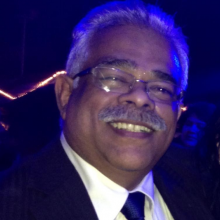Everyone needs a coach

Learning & Development
357 week ago — 3 min read
Summary: Executive coaching is a great way to augment and improve your business acumen and leadership skills. Learn more about executive coaching and how it can help in growing you as an entrepreneur and a person and your business.
In the seventeenth century, the French statesman Cardinal Richelieu relied heavily on the advice of Father François Leclerc du Tremblay, known as France’s éminence grise for his grey monk’s habit. Like the famous cardinal, today’s business leaders have their grey eminences.
But these advisers aren’t monks bound by a vow of poverty. They’re usually called Executive Coaches.
Ten years ago, most companies engaged a coach to help fix toxic behaviour at the top. Today, most coaching is about developing the capabilities of high-potential performers. As a result of this broader mission, there’s a lot more fuzziness around such issues as how coaches define the scope of engagements, how they measure and report on progress, and the credentials a company should use to select a coach.
Why Executive Coaching?
Executive Coaching has proven to be particularly effective because usually one does not advise coachees what to do but use coaching mindset, processes, and competencies to assist clients in finding out what they would need to do in a better way to get to where they want to be.
While sharing their own experiences is an added value coaches may offer, executive coaching is more effective when coachees have full ownership over their solutions and actions, leading to positive transformation and development.
Coaching as a business tool continues to gain legitimacy and is accepted more and more as a means for improvement at all levels.
Here are the areas recommended for greatest growth, which translates into improved performance and job satisfaction:
-
Self-awareness
-
Emotional self-mastery
-
Developing influence and persuasion
-
Empowering others to be independent
-
Developing positive interpersonal skills
-
Committing to something bigger
Ingredients of a successful coaching relationship
The question to ask is if the executive is highly motivated to change?
Yes: Executives who get the most out of coaching have a fierce desire to learn and grow.
No: Do not engage a coach to fix behavioural problems. Blamers, victims, and individuals with iron-clad belief systems don’t change.
To explore business opportunities, link with me by clicking on the 'Invite' button on my eBiz Card.
Disclaimer: The views and opinions expressed in this article are those of the author and do not necessarily reflect the views, official policy or position of GlobalLinker.
Posted by
Sudhir GuptaI am looking to connect with other business owners. Invite me to connect. We are a People Development organisation, working in the area of behavioural leadership skills. Work...
Network with SMEs mentioned in this article
Most read this week













Comments (6)
Share this content
Please login or Register to join the discussion